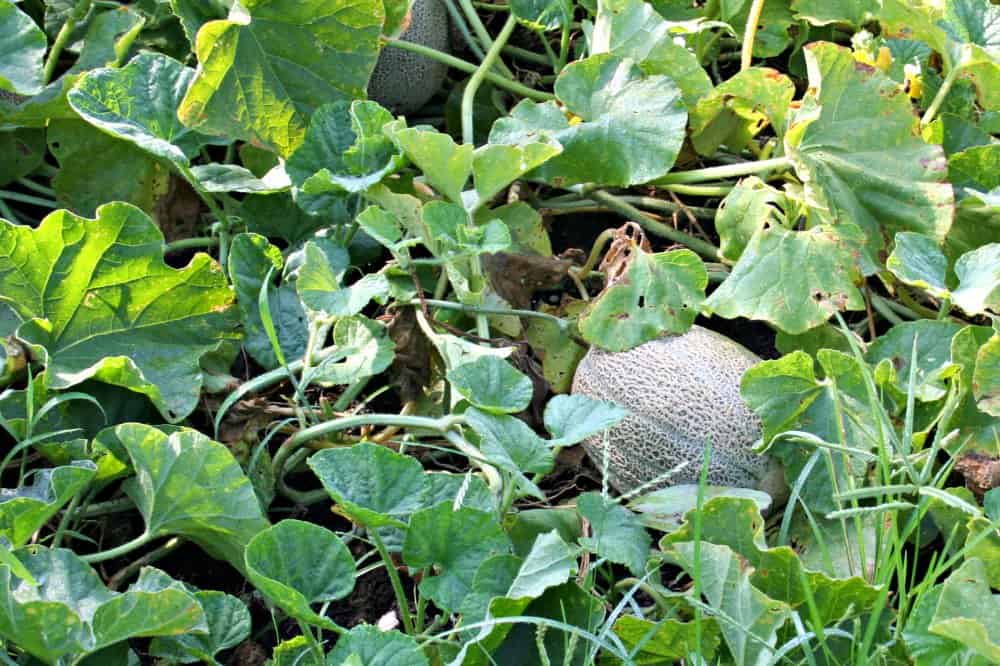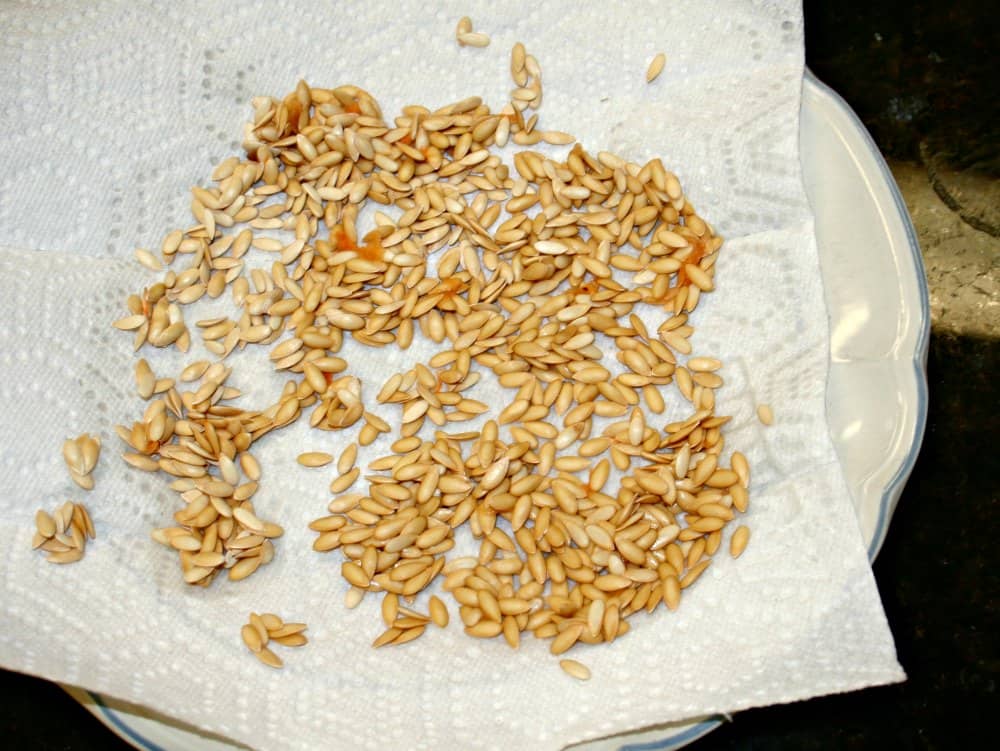Saving cantaloupe seeds and the seeds of its close to relation, muskmelon, is an impressive mission for folks new to seed beginning. The seeds are plentiful and simple to go looking contained throughout the ripe fruit.
Nonetheless not all cantaloupes produce viable seeds. This mission works most attention-grabbing with home-grown melon. Many enterprise melon varieties are hybrids, produced by crossing two strains. The next fruits could also be tasty, nonetheless the seeds could also be sterile. Heirloom or outdated kind varieties are typically most attention-grabbing to gather seeds from – and it’s satisfying to develop your specific particular person.

Saving Cantaloupe Seeds
Cantaloupes, or muskmelons, are an historic fruit. The Egyptians grew them with data indicating their existence method once more to 2,400 B.C.
The melons everybody is aware of and love are generally known as North American Cantaloupes or Cucumis melo reticulatus are muskmelons descended from Persian melons.
Cantaloupes could very nicely be pollinated by the wind or by bugs like bees. They merely cross with utterly completely different melon varieties. Which signifies that in case you are rising just a few selection all through the dwelling yard, the seeds of the next fruit will not be pure cantaloupes; within the occasion you happen to develop them, chances are you’ll get a shock (typically, a horrible tasting one).
Do it’s important to plant to develop cantaloupes for seed saving duties, among the many best strategies to develop them is by themselves far from one different gardens with melons. Not straightforward in a suburban or metropolis setting nonetheless a necessity to make sure pure seeds.

Saving Cantaloupe Seeds, Step by Step
- First, select the very ripest melon you’ll uncover. It should be yellow all by or have an enormous yellow spot. It is best to have the ability to odor a candy cantaloupe odor from the shell.
- In the reduction of the melon open. Inside, there’s a central cavity with seeds and a fleshy netting.
- Scoop the seeds and netting correct proper right into a colander all through the sink. In the reduction of up the remainder of the melon to benefit from, and naturally, add the rinds to your compost pile.
- Run the seeds and netting beneath cool water for loads of minutes. I exploit my palms to softly pry the seeds out of the inside netting. Often I’ve to select off additional cantaloupe flesh from the seeds. If an excessive amount of flesh sticks to the seeds, throw the seeds and bits of cantaloupe out.
- Let the rinsed seeds air dry all through the colander or drip dry for an hour or two. Run your fingers by them or stir them often to permit additional water to empty off.
- Unfold the rinsed, dry, clear seeds on a paper towel unfold out on a plate or tray. Place the seeds in a cool, darkish, very dry setting.

As rapidly as dried out precisely, retailer in paper envelopes marked with the fluctuate and type of seed. They should be viable for as quite a bit as three years. You may conduct a seed viability confirm in case you are uncertain.
Factors with Saved Seed Germination? It May Be the Melon
Saving melon seeds is pleasurable nonetheless a phrase of warning; retailer purchased melon seeds could or could not yield an equal option to that melon you favored from the grocery retailer. Due to such fruits are grown for enterprise commerce and in no way for seed saving, they could very nicely be grown together with utterly completely different melons, and the fruit could have seeds containing a peculiar genetic combine. The next melons could or could not kind one factor an identical to the dad and mom.
You’re bigger off purchasing for good top of the range seeds from a wonderful grower or saving your specific particular person from a house yard the place you understand the crops and the best way through which far-off the closest melon patch is to your yard.

